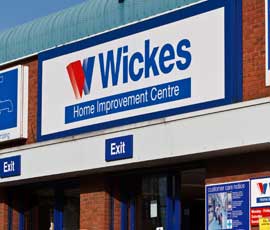Garden centres remove neonicotinoids

Garden centres are removing household products containing neonicotinoid pesticides linked to bee decline from their shelves.
The action by Notcutts, Hillier, Squires and Blue Diamond, which between them operate 60 garden centres across the UK, follows similar moves by DIY superstores B&Q, Homebase and Wickes.
Andrew Pendleton, Friends of the Earth’s head of campaigns, said: “It’s great to see garden centres across the UK heeding the warning from European safety experts and pulling pesticide products linked to bee decline from their shelves.
“The approach of leading retailers stands in stark contrast to the government’s reluctance to back European efforts to safeguard bees from pesticides.
“With bee numbers plummeting DEFRA minister Owen Paterson must take urgent action to safeguard these crucial pollinators by backing a ban and introducing a bee action plan to tackle all the threats they face.”
Concern about the impact of neonicotinoid pesticides on bee populations has risen sharply in recent months.
Last month, the European Commission proposed restrictions on three neonicotinoid chemicals following a report by the European Food Safety Authority (EFSA), which highlighted a “number of risks” posed by neonicotinoids to bee health.
But manufacturers of the chemicals, Bayer CropScience and Syngenta, have rejected the findings of the study, saying it is seriously flawed both in its methodology and conclusions.
The European Commission has proposed a two-year ban on the use of neonicotinoid pesticides on crops attractive to bees, including oilseed rape. MEPs are due to vote on the proposal on 25 February.
A ban would affect the sale and restrict the use of seed treatments used in plant protection products containing the active ingredients imidacloprid, thiamethoxam and clothiniadin.
Syngenta: EFSA pesticide report on bees is flawed
Partial ban on neonicotinoids proposed by European Commission
